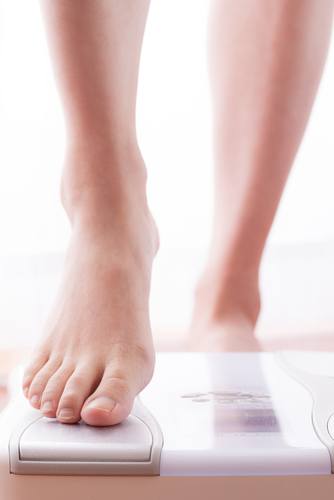The majority of media at the moment focuses on the impact that obesity or simply being overweight can have on fertility, but being underweight also has devastating (and sometimes more long-lasting) consequences.
The most common cause of infertility related to being underweight is hypothalamic amenorrhea; this condition stops the menstrual cycle and can result in other symptoms such as low libido. In simple terms, it is the body’s reaction of stress to starvation signals that prevents pregnancy in unsafe times. Unfortunately, in the modern world it is often the result of an intense training regimen (common among athletes), eating disorders, or even a stressful job. Even fast weight loss can trigger hypothalamic amenorrhea, which can be particularly distressing for women who are losing weight specifically to improve their chances of fertility.
Unlike many fertility issues, there are ways to improve your chances of conceiving when you are underweight and suffering from hypothalamic amenorrhea – this involves removing the initial triggers for the condition. It is important to relax and eat healthily to signal to the hypothalamus that the environment is safe and food is plentiful:
- Relax: there are a number of elements to this level of relaxation. It is important to sleep well and maintain a regular sleep cycle, reduce stressors, and exercise gently to maintain a healthy body without severely decreasing body fat or depleting physical resources.
- Eat well: for women who have had a history of eating disorders or are simply used to restricting their diet, this can be particularly difficult, but it is incredibly important to eat well and regularly. A varied diet, with enough carbohydrates, fat, and frequent meals is central to helping with this type of amenorrhea. In some instances, you will need to consult a dietician or therapist to create an eating plan and repair your relationship with food. Many women need to eat around 2200 calories or even more to improve their fertility, with a diet that’s centred around healthy fats and nutrients.
It can take up to 6-12 months for these steps to help your fertility, but treating your body and lifestyle as a whole is the most important step in regaining fertility and improving your chances of success.

